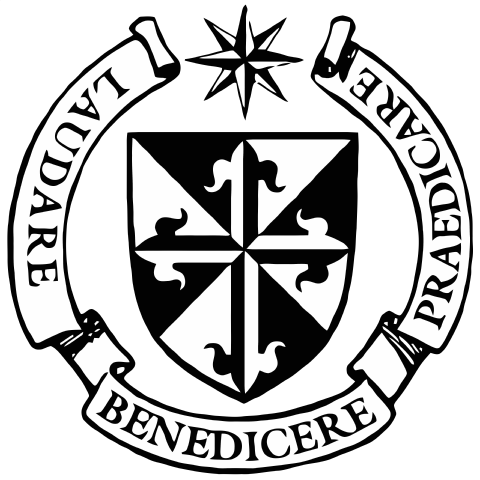So shall the king desire your beauty; for he is your lord, and you must worship him.
Father Luke Hoyt, O.P.
What your life means to me…
Happy Feast Day of St. Agnes of Montepulciano.
I’m honored to be with you for this feast. And indeed, it is only by being with you today that I get to celebrate this as a feast. If I were back home with my parish, it would just be an optional memorial. But since I am with you, I get to have a feast day. St. Agnes is a feast for you since she is “one of your own” – a prioress of multiple communities of Dominican nuns.
Today is a day for you to reflect upon and give thanks for the gift of your life as a Dominican nun. You alone know what that has meant for you and you alone can adequately reflect upon and give thanks to God for this life that you share with St. Agnes and with each other.
So, what can I offer you? I can at least share with you what your life means to me and to those members of the faithful, I presume, who are gathered with me here this morning in your chapel. Here are three thoughts on what your life means to us on the outside, drawn from this 45th Psalm that one of you just sang so beautifully.
“Hear, O daughter, and see; turn your ear, forget your people and your father’s house. So shall the king desire your beauty; for he is your lord, and you must worship him.”
You have each indeed forgotten your own people and your father’s house and come here to this place to be with the King. I am sure this has been painful in many ways, and yet you heeded the Lord’s call to leave behind the world and your connections in the world so that you may be with Him in a special and intimate way.
For those of us on the outside, you are a reminder to us that there are ways each of us too, although we continue to live in the world, are called sometimes to “forget our own people and our father’s house” for the sake of God. You remind us of Jesus’ words that the one who does not “hate his father or mother is not worthy” of him. Not that we shouldn’t honor our parents, but that there may be moments in our life when we must conclusively choose God above our father or mother.
“All glorious is the king’s daughter as she enters; her raiment is threaded with spun gold. In embroidered apparel she is borne in to the king.”
You are clothed in your wedding garment this morning, as you are every morning in your life here. You did not choose how to dress, you allowed yourself to be clothed by the Lord, in the raiment and apparel he has given you, in the habit of our Order.
I still remember the moment when I was clothed in the habit of our Dominican Order, and what a big moment that was for me: to realize that, “I am letting myself be clothed in a new garment; I no longer will be clothed in the clothing of my choice, of the world, but in the apparel the Lord has given me to wear.” And perhaps you experienced the same realization.
In this, you are a reminder to us of the parable of the wedding feast, when the fellow who is not clothed in the wedding garment, but in his own attire, is thrown out of the feast. Each of us, whatever our state in life, must allow ourselves to be clothed however the Lord chooses to clothe us – in the baptismal garment of Christ himself, and not in the old clothes of the old self. Only by allowing him to clothe us as he sees fit will we enter the wedding feast.
“They are borne in with gladness and joy; they enter the palace of the king.”
We are not in the palace of the king yet, are we? We long to be, but not there yet.
However, here in this place of your monastery, we are in the antechamber of his palace. Your home here is the antechamber of the palace of the king. And multiple times every day you gather here in this chapel, to sing his praises again and again, to recall that you are indeed so close to his palace.
For those of us in the world outside your monastery, we are grateful to come here and visit your chapel here, to catch a glimpse of your life here, to see the witness of the life you live here. For, when we do, we are reminded that although we are not yet in the King’s palace, we are in his antechamber; and that someday by His grace we too will enter his palace to rejoice with all of His faithful forever.
“They are borne in with gladness and joy;
they enter the palace of the king.”

